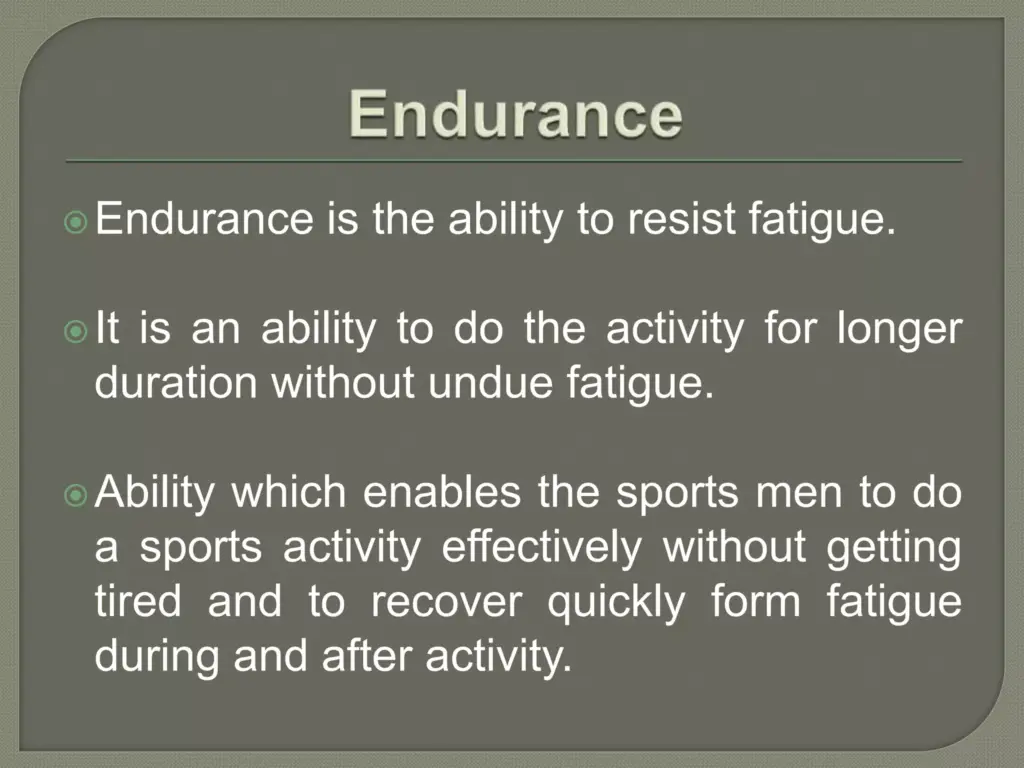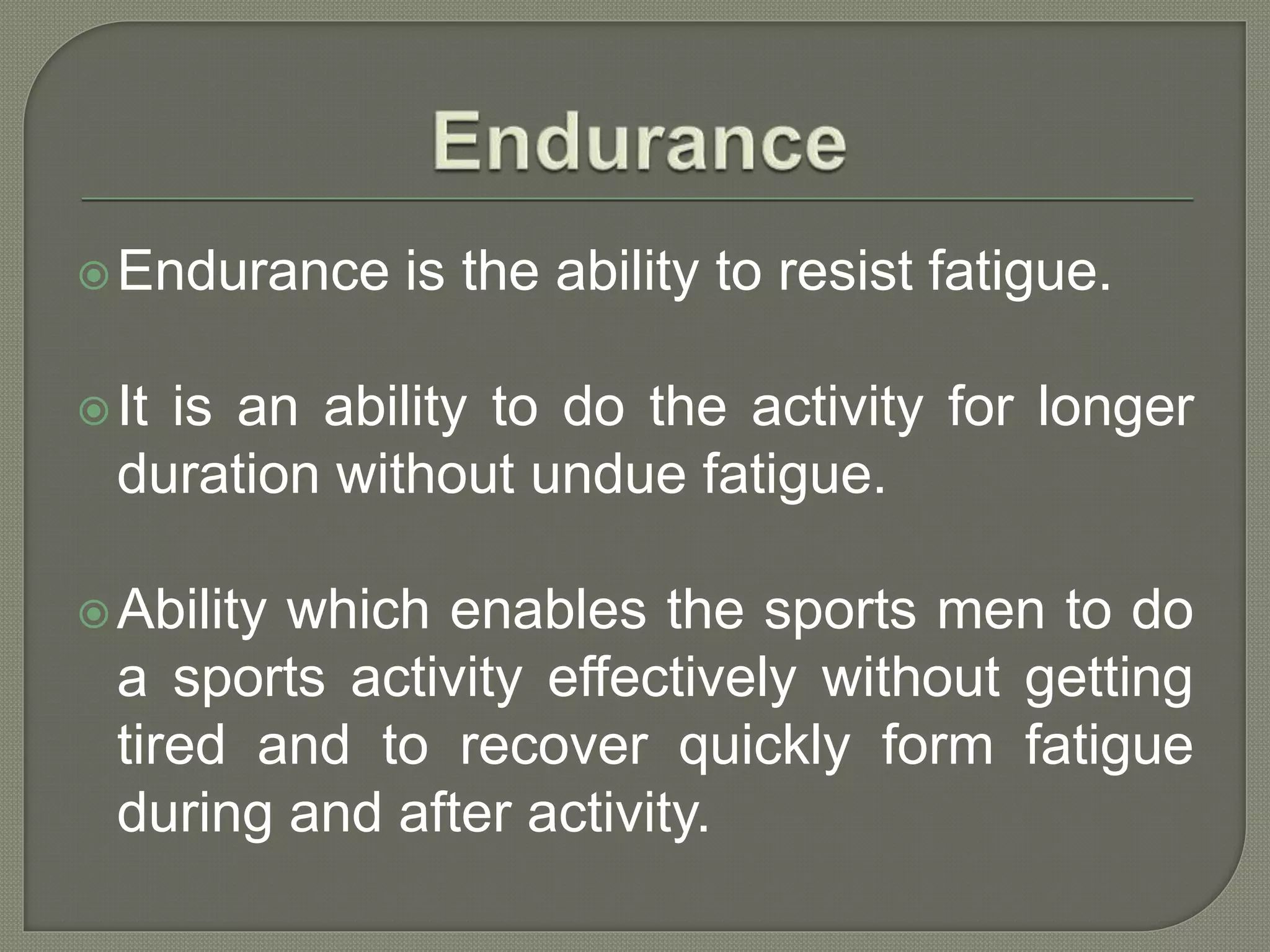
What Does Endurance Mean? Exploring Its Significance in Life and Athletics
In a world obsessed with instant gratification and immediate results, the concept of endurance often gets overlooked. But what does endurance really mean? Beyond simply lasting longer, endurance encompasses a complex interplay of physical, mental, and emotional fortitude. It’s about persevering through challenges, pushing past limitations, and ultimately achieving goals that require sustained effort. This article delves into the multifaceted nature of endurance, exploring its various forms, its importance in different aspects of life, and how it can be cultivated.
Defining Endurance: More Than Just Stamina
While often used interchangeably, endurance and stamina are not entirely synonymous. Stamina refers primarily to the ability to sustain physical activity for an extended period. Endurance, however, incorporates a broader range of factors, including:
- Physical Endurance: This is the most commonly understood aspect, referring to the body’s ability to withstand prolonged physical exertion. It involves cardiovascular health, muscle strength, and resistance to fatigue.
- Mental Endurance: This refers to the ability to maintain focus, concentration, and motivation in the face of adversity or boredom. It’s about mental toughness and the ability to push through mental barriers.
- Emotional Endurance: This involves managing emotions, such as frustration, disappointment, and pain, during challenging situations. It’s about resilience and the ability to bounce back from setbacks.
Therefore, endurance is a holistic concept that encompasses the interconnectedness of the body, mind, and emotions. It’s not just about how long you can last, but also about how well you can manage the challenges you face along the way.
Endurance in Athletics: A Cornerstone of Success
In the realm of sports, endurance is a critical component of success in many disciplines. Marathon runners, cyclists, swimmers, and triathletes all rely heavily on their endurance to complete grueling events. But endurance is not limited to these traditionally “endurance” sports. Athletes in team sports, such as soccer, basketball, and hockey, also require significant endurance to maintain peak performance throughout a game. [See also: Training Strategies for Long-Distance Runners]
The development of endurance in athletes typically involves a combination of training methods, including:
- Cardiovascular Training: Activities like running, swimming, and cycling help improve the efficiency of the heart and lungs, allowing the body to deliver oxygen more effectively to working muscles.
- Strength Training: Building muscle strength helps improve power output and reduce the risk of injury during prolonged activity.
- Interval Training: This involves alternating between high-intensity bursts of activity and periods of rest or low-intensity activity. Interval training can help improve both speed and endurance.
- Nutrition and Hydration: Proper nutrition and hydration are essential for fueling the body and preventing fatigue during endurance events.
Beyond the physical aspects, mental endurance is also crucial for athletes. The ability to stay focused and motivated, even when facing pain and fatigue, can be the difference between victory and defeat. Athletes often employ mental strategies, such as visualization and positive self-talk, to enhance their mental endurance.
Endurance in Everyday Life: Navigating Challenges and Achieving Goals
The importance of endurance extends far beyond the athletic arena. In everyday life, endurance is essential for navigating challenges, overcoming obstacles, and achieving long-term goals. Whether it’s pursuing a demanding career, raising a family, or coping with a chronic illness, endurance allows us to persevere through difficult times and emerge stronger. [See also: The Importance of Mental Resilience in the Workplace]
Consider the following examples:
- Career: Building a successful career often requires years of hard work, dedication, and resilience. Individuals with high levels of endurance are more likely to stay motivated, overcome setbacks, and achieve their professional goals.
- Relationships: Maintaining healthy relationships requires patience, understanding, and the ability to navigate conflicts. Endurance is essential for weathering the storms that inevitably arise in any relationship.
- Health: Managing a chronic illness can be physically and emotionally draining. Individuals with high levels of endurance are better equipped to cope with the challenges of their condition and maintain a positive outlook.
Cultivating Endurance: Strategies for Building Resilience
Endurance is not an innate trait; it can be developed and strengthened over time. Here are some strategies for cultivating endurance in various aspects of your life:
Physical Endurance Strategies
- Gradual Progression: Start slowly and gradually increase the intensity and duration of your physical activities. Avoid pushing yourself too hard, too soon, as this can lead to injury.
- Variety: Incorporate a variety of activities into your training routine to prevent boredom and challenge different muscle groups.
- Rest and Recovery: Allow your body adequate time to rest and recover between workouts. This is essential for muscle repair and growth.
- Proper Nutrition and Hydration: Fuel your body with a balanced diet and stay adequately hydrated, especially during and after physical activity.
Mental Endurance Strategies
- Set Realistic Goals: Break down large goals into smaller, more manageable steps. This will make the process less daunting and help you stay motivated.
- Practice Mindfulness: Mindfulness techniques, such as meditation, can help you stay focused and manage stress.
- Develop a Positive Mindset: Focus on your strengths and accomplishments, and challenge negative thoughts.
- Seek Support: Surround yourself with supportive friends and family members who can provide encouragement and guidance.
Emotional Endurance Strategies
- Practice Self-Care: Make time for activities that you enjoy and that help you relax and recharge.
- Develop Coping Mechanisms: Identify healthy ways to cope with stress and difficult emotions, such as exercise, journaling, or spending time in nature.
- Seek Professional Help: If you are struggling to manage your emotions, consider seeking help from a therapist or counselor.
- Learn from Setbacks: View setbacks as opportunities for growth and learning. Analyze what went wrong and identify ways to improve in the future.
The Long-Term Benefits of Endurance
Developing endurance is not just about achieving short-term goals; it’s about building a foundation for long-term success and well-being. Individuals with high levels of endurance are more likely to:
- Achieve their goals: They have the perseverance and resilience to overcome obstacles and stay focused on their objectives.
- Experience greater satisfaction: They are able to derive more enjoyment from their accomplishments, knowing that they have worked hard to achieve them.
- Cope with stress more effectively: They have the mental and emotional tools to manage stress and adversity.
- Live longer, healthier lives: Physical endurance is associated with improved cardiovascular health and reduced risk of chronic diseases.
Conclusion: Embracing the Power of Endurance
In conclusion, endurance is a multifaceted quality that encompasses physical, mental, and emotional fortitude. It’s about persevering through challenges, pushing past limitations, and ultimately achieving goals that require sustained effort. Whether in athletics, career, relationships, or health, endurance is an essential ingredient for success and well-being. By cultivating endurance through targeted strategies and a commitment to personal growth, we can unlock our full potential and live more fulfilling lives. Understanding what does endurance mean is the first step to harnessing its power. So, embrace the challenge, push your limits, and discover the transformative power of endurance.

